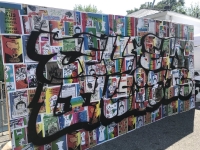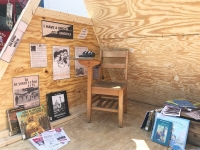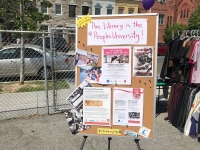The People's University: 1968-2018; Washington, D.C.
District of Columbia Public Library, District of Columbia
Innovation Synopsis
DC Public Library’s “The People's University” commemorates the 50th anniversary of 1968 — a transformative year in history — by engaging residents in understanding and carrying forth Dr. Martin Luther King’s ideals of equity through a series of social justice-themed programs and events that underscore the library’s role as a social change agent.
Challenge/Opportunity
D.C. ranks in the top five for highest rates of homelessness in the nation, and our librarians are often at the front lines of the inequality and inequity affecting District residents. They embody King’s vision of providing a “Resurrection City” by sharing the richness of community resources to help anyone. "The People's University" highlights the history of the library as an agent of social change and empowers residents to tell their own personal histories.
Key Elements of Innovation
Projects of "The People's University" feature empowering art programs, including an online exhibit featuring photographs from our "pop-up museums" at library branches across the city, "Soul Tent" cultural activations and musical performances at library branches and community events and "Hunger Wall" poster-making workshops for teens featuring local artists. For these events, the library provides the tools for participants to create their own art in response to issues of 1968 still urgent in 2018.
Achieved Outcomes
It will spark continued discourse on issues of equity, disparity and how communities can come together to address the intolerance that continues today. We are activating the library as a site of cultural production and civic engagement while exposing a new generation to history — and the still-living participants and witnesses to that history — in their backyard. Since the Poor People’s Campaign relaunched this year, we can connect local people to the organizers continuing Dr. King’s work today.



